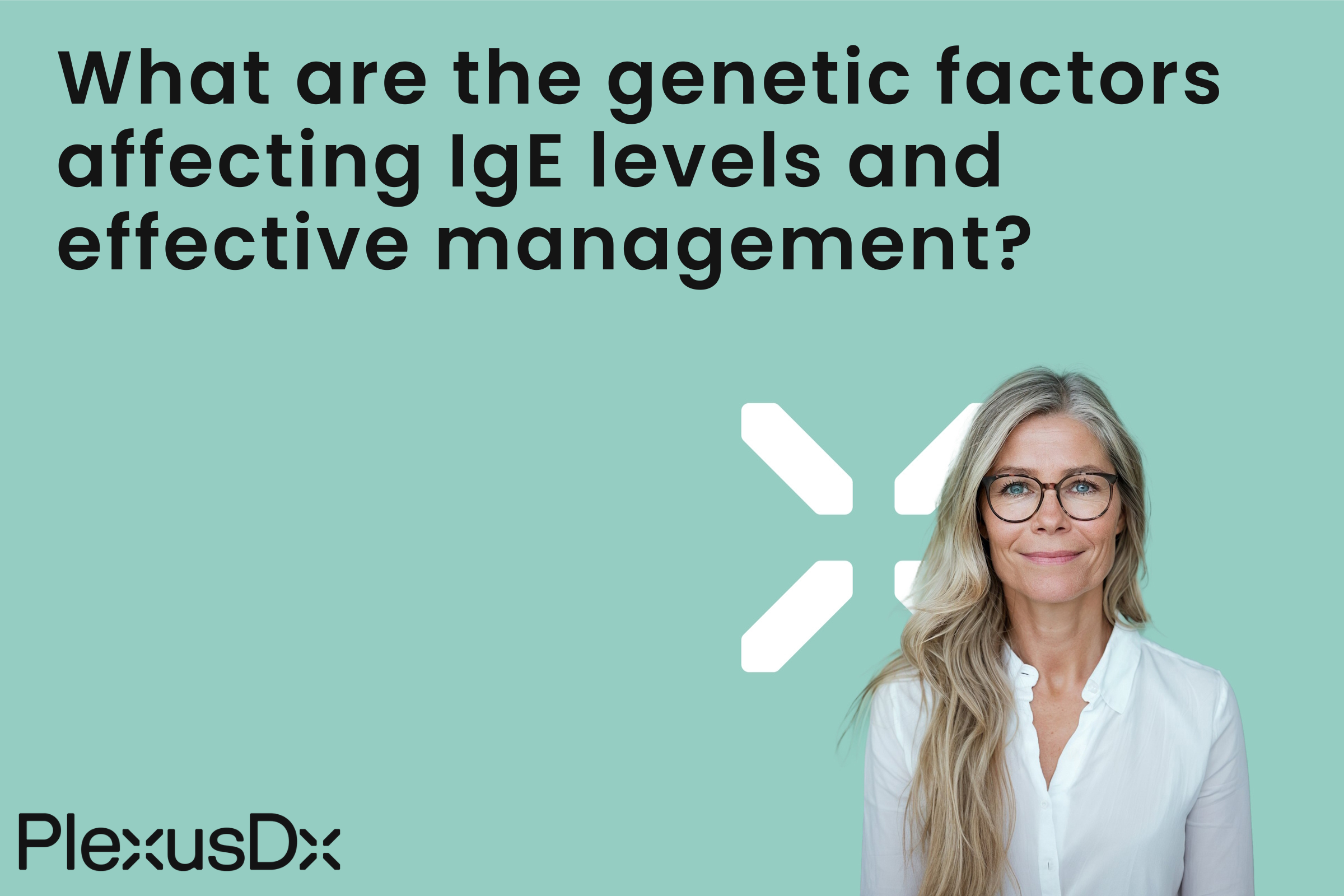Immunoglobulin E (IgE): A Dual Function
Our bodies use special defenses to fight parasites but this same mechanism makes some people more likely to develop allergies. Our immune system contains a remarkable element named Immunoglobulin E (IgE) which holds the answer. This blog post examines IgE's dual function as both a protector against infections and a trigger for allergic reactions. We will examine how IgE functions as a bridge between parasitic defenses and allergic reactions.
Protective Function Against Parasites
Immunoglobulin E (IgE) represents a vital antibody within our immune system that serves a critical function in protecting the body against threats. IgE serves as the body's main defense mechanism against parasitic worm infections. IgE functions as a protective barrier against parasitic infestations by identifying parasites and then binding to and removing these harmful invaders.
Role in Allergic Reactions
However, the story doesn't end there. IgE functions not just in fighting parasites and also contributes to allergic disease mechanisms. People with allergies develop increased IgE levels that target the specific allergen which activates their immune system. The increased production of IgE triggers multiple reactions that release histamine among other defense responses which result in classic allergy symptoms such as itching, sneezing, and nasal congestion.
Genetic Influences on IgE Levels
Genetic factors significantly shape the levels of IgE within individual bodies. Our body's response to IgE is controlled by specific genes which influence both IgE receptor production and their function through genetic variations. The FCER1A gene encodes for an IgE receptor which serves as an essential element in the immune response that involves IgE.
Managing IgE-Related Conditions
Elevated IgE levels can result from multiple factors like parasitic infections and allergies and also from smoking and alcohol consumption. Viruses, inflammatory bowel disease (IBD), kidney disease and some genetic disorders can cause IgE levels to rise. This report does not cover rare genetic disorders because such conditions are highly uncommon and usually identified during infancy. If your IgE levels might be affecting your health you can manage IgE-related conditions with these practical tips:
- Consult a Healthcare Provider: Consult a healthcare professional if you have continuous allergy symptoms or think your health problems may be connected to IgE levels. They perform suitable tests and offer customized advice adapted to your specific needs.
- Allergy Testing: Seek allergy testing to determine which allergens your immune system reacts to. Recognizing your allergy triggers enables you to reduce exposure risks and handle allergic reactions more effectively.
- Lifestyle Modifications: Embrace a healthy way of living through smoking cessation and alcohol moderation while eating nutrient-packed balanced meals. Through these lifestyle changes your immune system health and your overall wellness will receive positive enhancement.
- Regular Monitoring: Regular check-ups alongside monitoring will help you maintain awareness of IgE levels. Maintaining updated knowledge about your immune status enables collaboration with your healthcare provider to modify treatment strategies when necessary.
Conclusion
Immunoglobulin E (IgE) acts as an essential element of our immune defense system through its protective function against parasites and its role in allergic reactions. People can improve their health management by understanding genetic impacts on IgE levels and applying practical strategies to treat IgE-related conditions. Boost your health optimization efforts by investigating the Precision Health & Wellness assessments available through PlexusDx. Access comprehensive genetic insights and personalized health reports that correspond to your genetic profile by visiting PlexusDx.com or through Amazon and Walmart. Utilize knowledge to make educated choices that will improve your health and enrich your quality of life.

Share:
How do genetic markers affect psoriasis development and guide personalized management?
Effects of CNR1 gene variants on mood, anxiety, sleep, health, and optimizing fitness and recovery?